Graham Reid | | 4 min read

There's a much repeated reason why the men of Outback Australia are so tight-lipped.
"Flies. Open your mouth and a fly gets in," says a weather-beaten guy in a faded Akubra at the bar outside Brisbane. He's merely repeating the myth but, by his subsequent silence, confirms the cliche of these men for whom large expanses of dust and scattered scrub is their natural habitat. That, and a pub.
For anyone wishing to probe these seemingly taciturn guys about the attraction of an arid and often drought-stricken landscape they can be frustratingly monosyllabic, as I found on a recent trip into that unforgiving but often astonishingly beautiful territory.
There are exceptions of course, and Doug Sprigg is one of them. In fact he is an exceptional character all round.
One night over beers after his informative conversation had roamed unfiltered across botany, local wildlife, the composition of meteors, and geology -- and been interspersed with a few self-deprecating jokes about his receding hairline -- I asked what his degree was in. I assumed he had a PhD in Bloody Near Everything.
Doug didn't have a degree. From the time he could walk he'd been far too busy learning to worry about schooling.
When I first meet Doug he is changing a tyre on a huge four-wheel drive. I thought as owner-cum-manager of the Arkaroola Wilderness Sanctuary some 600km north of Adelaide -- a 61,000 hectare property in the Flinders Range his parents established -- he could have had someone else do it.
But Doug loves tinkering with things, repairing broken stuff, and has had a lifelong curiosity about machinery. And astronomy. And engineering. And Bloody Near Everything.
By necessity and out of passion Doug is also a pilot. He started flying when he was 15 and in the nearly four decades since has clocked up around 7000 hours.
"The most dangerous period is around 300 hours," he says as he fills his 30-year old Piper Chieftain at the wryly named Arkaroola International Airport, a strip of flat rocky land about 10 minutes drive from the Arkaroola lodge complex.
"That's when you've become complacent. The next most dangerous time is around 3000 hours because you've probably done your incident-free 300, had the fright, started to be careful and then over time let it slip."
I note every time Doug gets in the cockpit he says aloud his mechanical checks and then, despite there being not another human in sight on these Outback airstrips (let alone within a few kilometres) he calls out, "Clear".
And we lift off into the cloudless sky.
This is where Doug is also at home, looking down on a landscape he knows intimately and which, despite its apparent emptiness, he always has something interesting to say about.
He discusses geological patterns, points out the Mt Fitt mine which once provided Johnson & Johnson with 95 per cent of its talcum powder, and is an endless source of anecdotes. The barren landscape beneath becomes alive in Doug's presence.
On our way to William Creek Hotel he tells of a priest who took up a post way out here: "He wasn't a very good priest but he was an even worse pilot. His technique was he'd convince people to fly with him. If you weren't religious before you took off you were when you landed."
Later, as we fly over vast emptiness, he remembers another story, which happened at remote station beneath us. One night a young Japanese couple turned up in a Mazda they'd hired in Darwin. They'd driven across the rocky deserts, the car was falling to pieces, running on the rim of one tyre and the woman looked terrified.
"But the young fellah was convinced all they needed was a new tyre and they could push on. They were hundreds of kilometres from anywhere, no water, and a car that was dead on its legs.
"The guy at the station knew they shouldn't have taken a hire car so far but there was no way it could be returned, not in that condition and it was likely it wouldn't have made it back anyway. So they just tossed it in a ditch and the young Jap guy rang in and reported it stolen. No one would come looking for it out here anyway," he says gesturing towards the flat and deserted land below.
Doug Sprigg is the son of two equally remarkable parents: his late father Reg was also a legendary polymath who graduated with an M.Sc in geology, became a surveyor, and discovered the world's oldest fossil (although it took 20 years for his discovery to be recognised).
In 1983 Reg was awarded the Order of Australia, five years later he was given the Freedom of the City of London (for his work in petroleum exploration and environmental conservation), and in 1990 he was awarded an honours degree by Flinders University in Adelaide for his pioneering work in Oceanography.
Doug's partner Kristin is working on a book about Reg. I don't envy her.
Reg, of course, wrote his own books (four in total, and over 300 scientific papers) and Doug's mother Griselda also assisted in an account of her life. She was an equally remarkable woman and, despite being born in Scotland, came to love the Outback.
She and Reg met on the Isle of Arran during the war when he was in Britain for a geological conference. He returned to Adelaide, correspondence ensued and she arrived in late 1950. They married early the following year and within a fortnight Reg was ready to go bush again: he was on a secret assignment searching for uranium.
Unwilling to be left alone, Griselda went into the desert with Reg and despite the rigours of camp living -- and the poisonous bite of red-back spider on her bum -- she loved it, although the title of her 1988 memoir is telling: Dune Is A Four Letter Word.
Griselda was the first European woman to cross the Simpson Desert, and she did it three times. She also had their children Margaret and Doug with them.
It was out there, for practical reasons, Doug became the man he is today.
"Doug has always loved anything mechanical," says Griselda in her autobiography. "He brags about it."
That's not entirely fair, Doug is just a man of many passions -- mechanical things among them -- and once he starts he is almost impossible to stop.
One afternoon as we flew a few hours over the spinifex-scattered Simpson Desert I asked him what the story was behind an air crash which had happened near Adelaide. I knew Doug had been deeply involved in analysing the wreckage, just out of curiosity and because he doubted the causes given by the authorities.
An hour later Doug was still telling the story and his monologue had roamed freely across metal fatigue, analysis of the composition of ball bearings, wind shear, death threats and legal matters, something about Nasa, and a few anecdotes along the way.
For a man brought up in the Outback he denied the cliche of taciturn and tight-lipped men.
Lovely bloke . . . but I thought he'd never shut up.

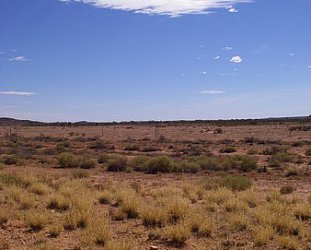

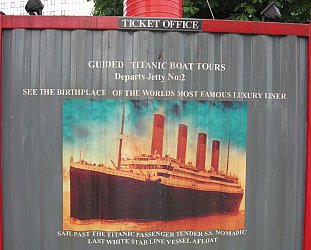
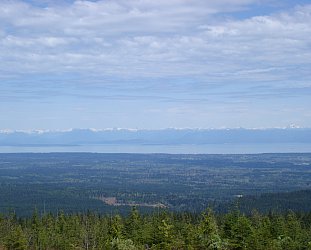
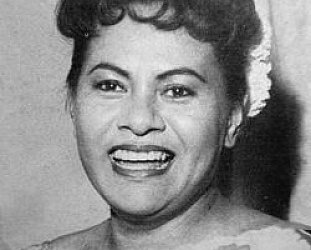
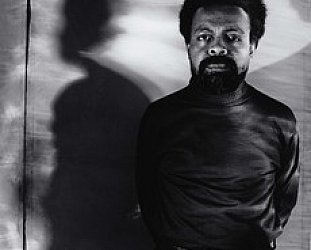
post a comment